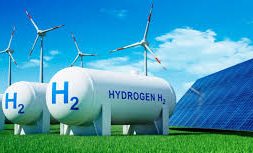
Porsche thinks you’ll want your next car to be electric
Electric cars will soon be common on American roads, even Porsche thinks so. American consumers are about to adopt electric cars on a large scale.
Look at the cars around you in traffic today and one commonality stands out. Virtually all have tailpipes, meaning internal combustion engines. That is about to change dramatically.
Tesla has made inroads, but now I believe we are approaching a turning point. In coming years we will see more widespread adoption as volume producers including General Motors, Nissan, and VW join with premium brands like Audi, BMW, Jaguar, Mercedes-Benz, and Porsche to launch numerous battery-only models. As more Americans experience the instant power and sporty handling that electric cars provide, more will want this new generation of electric vehicles.
Electronic vehicle (EV) sales in the U.S. last year totaled 361,307 — a fraction of more than 17 million new cars and light trucks but an increase of 81 percent year-on-year, according to industry figures. Where does the trend line go next? Some researchers, including at the International Monetary Fund, predict EV adoption will follow the model of a century ago, when cars displaced horse carriages on American streets within 15 years. Other experts see the U.S. remaining an island of internal combustion engines in a world gone electric. Deloitte made headlines by predicting that consumer disinterest would cause a glut of 14 million unwanted EVs globally over the next decade.
Consumers will soon embrace EVs
It’s no surprise, then, that a common question I hear about the new EVs coming to the U.S. is, “Will anyone buy them?” I believe the answer is unequivocally yes. Technology transitions are, by their nature, hard to forecast in advance. But with more than 20 years of automotive industry experience, I see clear market indicators that American consumers are about to embrace EVs as their daily drive.
First, Tesla has proven there is significant demand for cars that combine sustainability with performance and design. Last year, the Model 3 outsold any other premium sedan in the U.S. We know that American consumers embrace new technology, especially if it delivers a new experience. And once a technology catches on, consumers respond well to expanded choice as competitors enter the field. Just look at how many models of SUV you can buy today, or the proliferation of smartphones since Apple introduced the iPhone in 2007.
Second, a national charging infrastructure is now taking shape. For several years there has been a chicken-or-egg conversation about which should come first: large-scale adoption of EVs or large-scale development of charging points. It turns out that both are happening. Electrify America, with whom we are partnering, is already building hundreds of charging dispensers in cities and along highways from coast to coast by July 1, with more to follow. Other networks are also growing, including ChargePoint and EVgo. And Shell recently acquired Greenlots, which provides hardware and software to operate charging stations, suggesting that oil companies see a future in adding energy for EVs to their fuel business.
Third, electric vehicles are cleaner than they have ever been. According to new data from the U.S. Environmental Protection Agency, driving on electricity in the U.S. today is the equivalent, on average, of driving a conventional gasoline car that gets 80 MPG. The nation’s electric grid is also getting cleaner, with reliance on coal declining by almost 20% over the past decade and renewable power like wind and solar increasing by about 10%.
Lastly, we are already seeing strong customer demand for the first all-electric Porsche, the Taycan, which will launch late this year. Since last August, we have been collecting preregistrations from customers through our dealers. These are people who are serious enough to visit a local dealership and register, sometimes with a deposit. It’s not a binding sales contract, and the numbers are proprietary, but I can say this: We already have enough interest to account for all the Taycans we expect to deliver in the U.S. in the first year, through late 2020. That’s powerful, given that the final production model has yet to be unveiled. And the market potential is so strong that we just announced we will switch our best-selling model, the Macan compact SUV, to all-electric in the next few years.
Expect EVs to become common on streets near you
Let’s be clear: We believe EVs will quickly become commonplace in the U.S. new car fleet, not that they will fully displace internal combustion engines. Porsche is committed to a three-power train strategy for at least the next 10 years, meaning we’ll produce EVs and plug-in hybrids as well as internal combustion engines. I don’t believe these are mutually exclusive for many consumers. For example, fewer than half of the customers who have registered for a Taycan in the U.S. are current Porsche drivers. But of those who are, the biggest single group own 911s, our iconic sports car. The fact that someone can love the sound and feel of an exhilarating flat-six gas engine and also be attracted to the silent power of a performance EV says volumes about the capacity of the U.S. market for this new power train.
Frankly, EVs are fun to drive. That should mean something coming from someone like me who is immersed in the Porsche heritage of 70 years of gas-powered sports cars. Electric motors provide instant torque for quick acceleration, and the lower center of gravity from battery packs will reinforce the sporty feeling. So don’t be surprised when all of this truly catches on in the near future. Quickly and very quietly, electric vehicles will go from being an occasional sighting in your rear-view mirror to filling the lanes around you — to maybe even parking in your garage.
Klaus Zellmer president and CEO of Porsche Cars North America.











